THE FOUR CONDITIONS
Photo by: James Cooper Jackson, https://bio.site/thisisjamesj
Failure to acknowledge and live in harmony with these Four Conditions of reality
gives rise to and perpetuates the unpeaceful mind.
Interdependence
All conditioned things in the whole of things inter-are. Interdependence is the fact of causality. Nothing comes into being or passes away on its own. Everything comes into being, exists for a time, and passes away in relationship to an infinite variety of continuously changing conditions. Other ways of expressing interdependent causality are:
When this is, that is.
When this comes into being, that comes into being.
When this ceases to be, that ceases to be.
When this is not, that is not.
All conditioned things in the whole of things depend on their momentary relationship with each other. Awareness of interdependence helps us know the value of being present, belonging to a global community, and contributing to the universal common good. Acknowledging interdependence validates the necessity for being peaceful within ourselves and with others wherever we are, doing whatever we’re doing as we’re doing it.
Impermanence
Impermanence is impersonal: it has no respect for anything or anyone. All interdependent things in the whole of things are continually changing. Impermanence makes all conditioned things possible. Change is the felt effect of impermanence:
Grains of wheat change into stalks, their seeds harvested and milled into flour to become our daily bread.
Droplets of rain in clouds change into streams that change into rivers that change into reservoirs, that may become drinking water or warmed to become a cup of tea.
Sperm and egg change into an embryo and become one of us.
Understanding that all things in the whole of things are impermanent, that all interdependent things arise, have their influence for a time, and pass away makes clear:
The past is an interpretation of a time and place where life is no longer possible: there are no choices, places, or forms of existence in the past. We can recall, reflect on, and learn from remembered experiences. A good example is we can remember but not breathe a past breath.
The future is an interpretation of a time and place where life may be lived: a potential of infinite possibilities. There are no choices, places, or forms of existence in the future. We can plan for and dream about future experiences. A good example is we can imagine but not breathe a future breath.
The present is an interpretation of the time and place where life is lived. It is where choices, places, and forms exist. It’s the only place and time where and when we exist—the only place and time where and when we can breathe.
We determine whether changes are positive or negative experiences, clinging to or pushing away either condition’s unpeaceful mind. We want the positives to last forever and fear the negatives will. Acknowledgment of and skillfully responding to impermanence helps us appreciate positive changes and cope with the negatives more easily. To be aware of impermanence is to acknowledge the value and importance of choice in each irreplaceable moment: the only time and place we have for choosing to be peaceful within ourselves and with others wherever we are, doing whatever we’re doing as we’re doing it.
No Separate Self
There’s no better experience with interdependence and impermanence than awareness of no separate self. Awareness and acknowledgment of no separate self is a step beyond awareness and acknowledgment of interdependence and impermanence. With this experience comes the certainty that all conditioned things in the whole of things do not have an independent nor permanent existence outside their interdependent causal conditions. We inter-are with the whole of things. The whole of things inter-is with us. To believe in, identify with, and live as a separate self is to live with a false identity; such a belief and way of living provide the ground wherein an unpeaceful mind grows and flourishes.
No separate self doesn’t negate our particularities; it doesn’t mean that what we call ourselves doesn’t exist. If you’re not a self, what’s reading these words, trying to understand them, and seeking peace of mind? The sense of individuality is beneficial for knowing the difference between oneself and another to prevent self-harm. The sense of a separate self knows it’s okay to eat an apple but not okay to eat the fingers holding the apple. For Sāntimāggā, no separate self means that all living formations have the right to share in all things. All living formations need clean air, wholesome food, and unpolluted soil and water. Everyone needs proper shelter, health care, and a means to earn a healthy and comfortable living. We all experience being born, growing old, getting sick, and dying. We all want the best life for ourselves, our loved ones, our community, and our planet. We all have emotions and feelings. With this understanding comes a shared responsibility to support peace everywhere and contribute to and perpetuate the universal common good.
Choice
Making choices is available to us because all conditioned things in the whole of things exist in a web of interdependence and continual transformation. As self-aware agents within this web, we influence the transformation process. Beliefs and understandings, intentions, choice-making, deciding, and our behaviors inter-are with the flow of things. Choosing is essential to peace of mind because it’s the foundation of self-management. We can choose our beliefs and intentions and decide how we behave. On the global level, collective beliefs, intentions, choices, and decisions regarding how communities behave determine whether and how the whole of humanity survives its darker nature. As individuals or participants in community choice-making, our opportunity to choose is momentary in the space between perceptual awareness and action. To take maximum advantage of this way of things, we must be present within ourselves and for others wherever we are, doing whatever we’re doing as we’re doing it.
Choosing is an act of intention supported by commitment. The choices we consider and the decisions we make show who we are. Knowing that choices can be intentional responses helps us see the importance of contemplation and introspection: knowing, examining, and clarifying our beliefs and understandings. With practice, we learn that choice-making precedes decision-making, decision-making precedes behavior, and behavior precedes consequences for self, others, and our shared planet. Being present and mindful, focusing attention on the perceptual contents flowing through our awareness, enables us to choose responses to our experiences that support our intention to be peaceful within ourselves and with others wherever we are, doing whatever we’re doing as we’re doing it.
